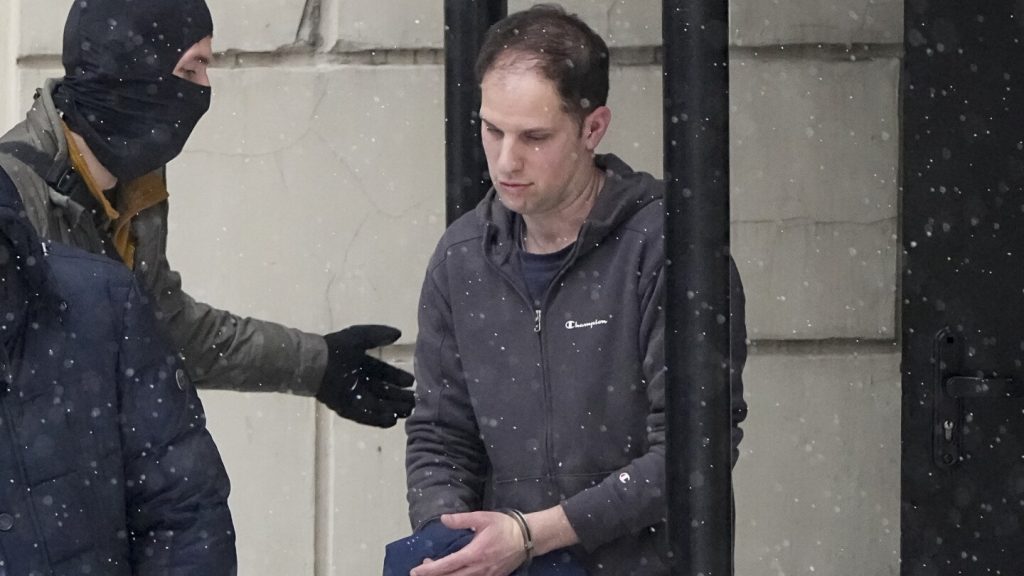American journalist Evan Gershkovich has been navigating the Russian court system for the past year after being arrested on espionage charges while on a reporting trip for The Wall Street Journal. The Federal Security Service, or FSB, alleges that he was collecting state secrets on U.S. orders, but no evidence has been provided to support this claim. Gershkovich, his family, and U.S. officials deny the accusations, with Washington designating him as wrongfully detained. Despite the repeated closed court hearings and rejected appeals, Gershkovich remains resilient and his supporters are vocal in advocating for his release.
Gershkovich’s court appearances offer a brief glimpse to his family, friends, and U.S. officials, providing a break from his monotonous prison routine. Although he often appears smiling in court, facing a wall of cameras has been difficult for him, as described by friends and family. His most recent court hearing resulted in his detention being extended until at least June 30, marking the fifth time his time behind bars has been lengthened pending trial. The lack of new revelations during these hearings adds to the frustration and uncertainty surrounding his case.
The arrest of Gershkovich, the first U.S. journalist taken into custody on espionage charges since 1986, came as a shock to many, given his accreditation by the Russian Foreign Ministry. Moving to Russia in 2017, Gershkovich had immersed himself in the country’s culture and formed close friendships with fellow reporters. These friends have become strong advocates for his release, emphasizing his resilience despite being held in the notorious Lefortovo prison. He endures a strict daily routine, with limited access to the outside world, relying on reading, writing, and updates from friends to stay connected.
Despite the grim circumstances of his detention and the pressure from the U.S. government for his release, Gershkovich’s future remains uncertain. The possibility of a prisoner swap has been raised by both the U.S. and Russian authorities, but no agreements have been reached yet. The Biden administration continues to seek his release, condemning the charges against him as fictional and part of Russia’s political maneuvers. As Gershkovich enters his second year in detention, his sense of humor and resilience are sources of strength for him and his supporters, who remain hopeful for a resolution in the near future.
The ongoing tensions between Russia and the West, exacerbated by the war in Ukraine and recent international incidents, complicate the prospects for Gershkovich’s release. While negotiations for a possible swap continue, the backdrop of geopolitical challenges adds to the uncertainty surrounding his case. Despite the strain on his family and loved ones, Gershkovich remains a source of pride and resilience, actively participating in gestures of kindness and support even from behind bars. As the second year of his detention begins, the hope for his freedom remains strong, but the challenges ahead are daunting.














